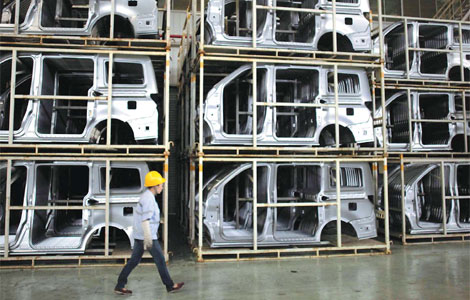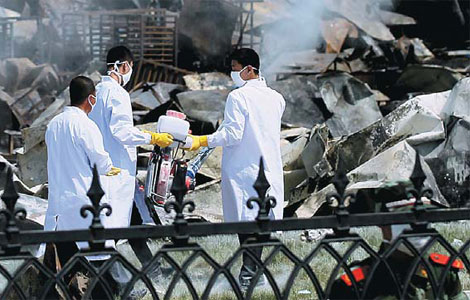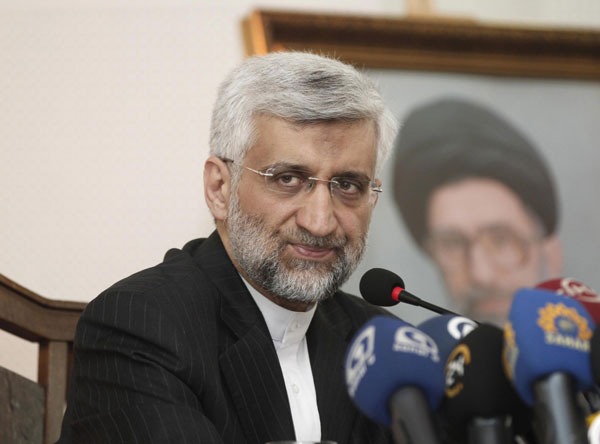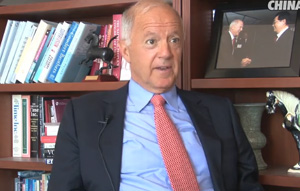Iran pres. candidates debate foreign policy
Updated: 2013-06-08 11:14
(Xinhua)
|
|||||||||||
TEHRAN - Iranian presidential candidates are divided over the country's foreign policy in their third and final televised live debate on Friday.
Saeed Jalili, a hardline principlist candidate, said that in international relations, the interests of the country will regulate the foreign policy of the Islamic republic.
"If our interests are at odds with (the demands) of some countries, we should defend our rights" by resistance, said Jalili, Iran's incumbent chief nuclear negotiator, who alluded to the conflicts between Iran and some Western countries over Iran's nuclear issue.
"One of our discussions is that we do not accept the hegemonic power in the world and are in challenge with it," Jalili said, adding that "We are in challenge with a system which intends to forcefully rule the world."
However, former Iranian Foreign Minister Ali-Akbar Velayati criticized Jalili's diplomacy over the country's nuclear issue in the past years, saying that it is "flawed".
"This is not diplomacy to sit face-to-face with the other side and to recite the same words" or "this is not diplomacy to read a statement before other countries," said Velayati.
He argued that the Islamic republic and the world powers could have reached an agreement if the Iranian negotiating team has responded positively to the proposals of the P5+1 group (five permanent members of the UN Security Council plus Germany) in the last round of nuclear talks in Almaty of Kazakhstan.
"The art of diplomacy is to preserve the country's nuclear right and, at the same time, we diminish sanctions," he noted.
Velayati said that before Iran's nuclear dossier was sent to the UN Security Council, he was invited to France at the invitation of then French President Nicolas Sarkozy to talk over the country's nuclear issue and they agreed that Iran should reduce the number of centrifuges but at the same time could keep nuclear enrichment activity.
However, Iran's Foreign Ministry under President Mahmoud Ahmadinejad's presidency told the French embassy that Velayati was not the government's representative to hold talks with the French president.
Therefore the negotiations to solve the country's nuclear issue were stopped and Iran's nuclear dossier was later submitted to the UN Security Council by the UN nuclear watchdog, which was followed by the successive sanctions and further pressures.
Related Stories
Iran bars candidates for presidential election 2013-05-22 07:56
Iran starts process to find next president 2013-05-08 08:49
Iran presidency candidates to step forward, finally 2013-05-07 11:21
Today's Top News
Police: Gunman killed 6 in California shootings
Chinese, US presidents start talks
Xi, Obama meet for 1st summit
Liu Zhijun to stand trial on Sunday
Stakes high ahead of Xi-Obama summit
5.9-magnitude quake jolts Taiwan: CENC
47 dead in E China bus fire
42 dead in SE China bus fire
Hot Topics
Lunar probe , China growth forecasts, Emission rules get tougher, China seen through 'colored lens', International board,
Editor's Picks

|

|

|

|

|

|






